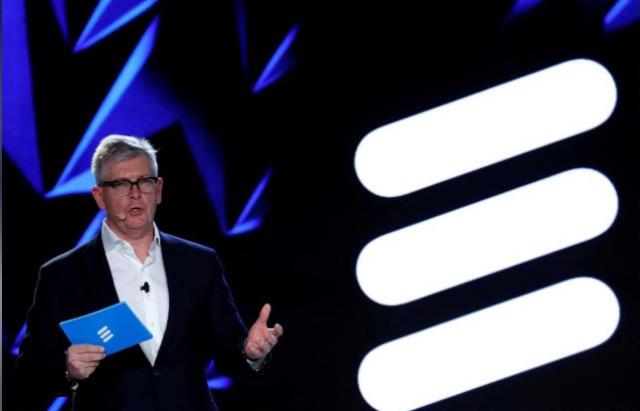Ericsson is showing its 5G technology innovations at the MWC 2019 as the telecom network vendor has already sealed 10 5G deals with top mobile operators worldwide.

The 5G contracts for supplying equipments are with AT&T, Verizon Wireless, T-Mobile and Sprint in the US; Vodafone UK, Telenor, Swisscom and Wind3 in Europe; and SK Telecom and Telstra in Asia.
Ericsson, the third largest telecom equipment maker behind second ranked Nokia and first ranked Huawei, is the only telecom equipment maker to reveal name of its 5G operator customers.
Ericsson has the resources and the supply chain capacity to meet a fast ramp-up of market demand as 5G is introduced globally, said Ericsson CEO Borje Ekholm at the Mobile World Congress.
The first 5G beneficiaries will be mobile broadband consumers with massive and highly cost-efficient capacity expansions facilitating new applications in augmented reality and virtual reality in areas such as gaming and sports broadcasts, Ekholm said.
Telecom operators can use the existing Ericsson Radio System hardware with a remote software installation for the deployment of 5G New Radio (NR). Ericsson has shipped more than 3 million 5G-ready radios to its customers.
Ericsson’s spectrum sharing capabilities and common core and dynamic orchestration solutions would put Ericsson customers in the lead with 5G.
Telecoms can utilize Ericsson Spectrum Sharing to dynamically mix 4G and 5G traffic on the same spectrum.
Borje Ekholm said Europe risks falling behind other regions in rolling out 5G mobile services because of onerous regulation and weak investment, not due to concerns about the security of networks.
High spectrum fees, regulatory uncertainty and a lack of investment are pressing concerns, alluding to calls by the United States to ban Chinese network vendors on national security grounds.
GSMA says 5G connections will reach 1.4 billion, accounting for 15 percent of global mobile connections by 2025. 5G is forecast to account for 30 percent of connections in markets such as China and Europe, and around half of the total in the US.
Mobile operators are currently investing around $160 billion per year towards Capex on expanding and upgrading their networks.
